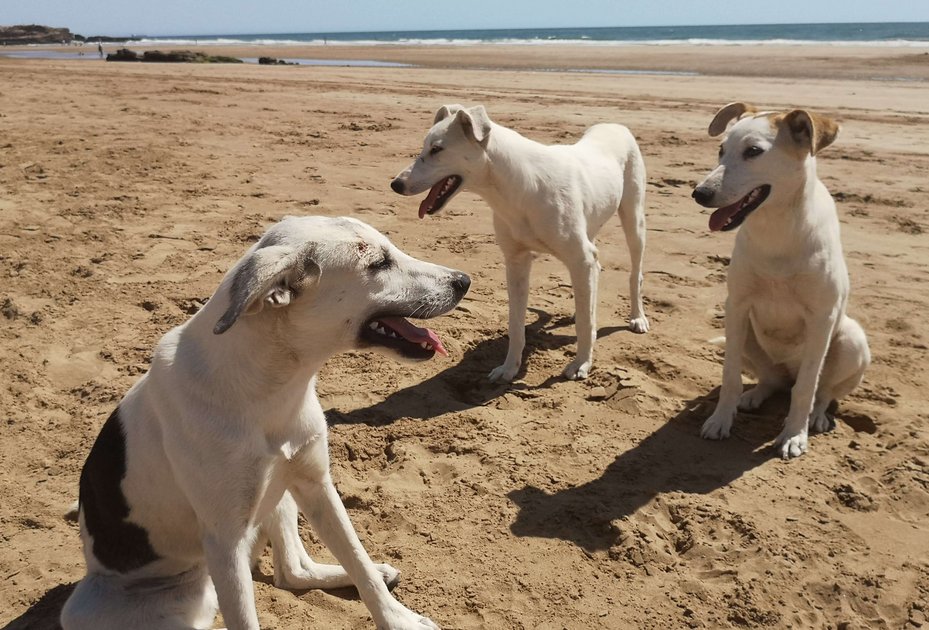- Home /
- University /
- Infoservice /
- Press Releases /
- A Question of Personality: New Method Reveals Dogs' Character
Research
A Question of Personality: New Method Reveals Dogs' Character
While the research on animal personality has significantly increased in recent years, it remains unclear to what extend our testing methods reflect animals personality, as they capture only a brief snapshot of animals behaviour. A recent study conducted by the Konrad Lorenz Institute of Ethology (KLIVV), at the Vetmeduni investigated how well experimental tests capture the natural behaviour of free-ranging dogs. The study demonstrated that behavioural tests indeed measure the personality of free-ranging dogs and can predict their behaviour in everyday situations.

While there are several established tools for studying domestic dogs, their free-ranging counterparts remain largely unexplored, despite presenting 80% of the global dog population. Since human socialization and training likely influence their personality development, this could potentially shift the personality spectrum of the species.
In their study, published in iScience, researchers from Vetmeduni developed and validated two complementary methods, intended to assess three personality traits: human-directed sociability, conspecific-directed sociability, and exploration. A total of 201 free-ranging dogs from the Souss-Massa region in Morocco were evaluated using both methods. Study lead author, Urša Blenkuš from KLIVV explains: "The first method was observational, based on behaviour of the dogs in their everyday environment, while the second involved an experimental test. In this behavioural test battery, each dog was sequentially presented with an unfamiliar human, a dog model, and a novel object to assess their reactions in various social and exploratory contexts."
Newly Developed Assessment Methods Provide Stable and Consistent Results
Both methods showed that the same behaviours were measured even after several weeks, indicating high temporal stability. According to the researchers, this suggests that the measurement tools correctly captured consistent aspects of individual personality over an extended time period. The researchers also found that the results between the two methods were comparable between individuals, which demonstrates that the personality of free-ranging dogs can be reliably measured across different contexts.
Pioneering Future Personality Research on Wild Animals
"Our results show that personality traits in free-ranging dogs can be reliably measured," emphasizes Urša Blenkuš. Furthermore, the study demonstrates that long and complex experimental tests can be measured even in environments prone to disturbances, meaning they are not limited to controlled indoor settings. "The findings of our study represent an important step in the exploration of personality in wild animals. Our research paves the way for including free-ranging populations in broader personality studies and enhances our understanding of the behavioural ecology of such species," concludes Urša Blenkuš.
The article „Personality Traits in Free-Ranging Dogs: Do Experimental Tests Mirror Natural Behaviour?“ by Urša Blenkuš, Friederike Range, Debora Prince, Corisande Abiven, Giulia Cimarelli and Sarah Marshall-Pescini was published in „iScience“.
Scientific article
Scientific contact:
Urša Blenkuš
Konrad Lorenz Institute of Ethology (KLIVV)
Domestication Lab
University of Veterinary Science (Vetmeduni)
Ursa.Blenkus@vetmeduni.ac.at